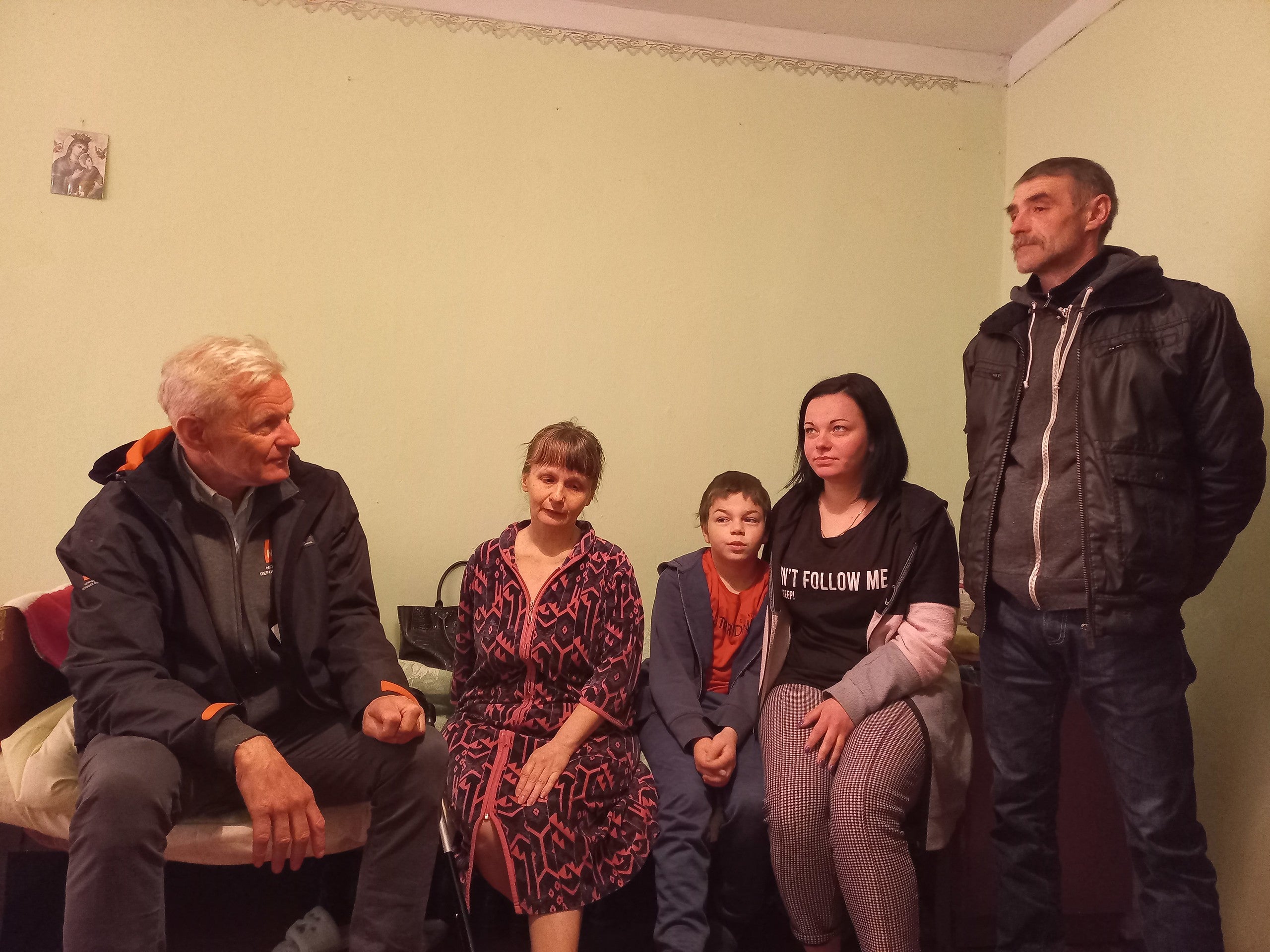
Hundreds of thousands of elderly Ukrainians are trapped in the east of the country, unable or unwilling to leave, as Russian forces bear down on their towns, a top humanitarian official has warned.
While the plight of children and mothers leaving areas in the east and heading to towns in the west of the country, or nations such as Poland, has received widespread media attention, the dangers facing the elderly have been largely overlooked, says Jan Egeland, Secretary General of the Norwegian Refugee Council (NRC).
Egeland says many of these people aged in their 70s and 80s, have disabilities or else are bedridden. In some communities in eastern Ukraine, where Russia is now focusing its military operation, elderly people account for as much as 60 per cent of the population.
It is is a reverse of the situation in crises in places such as Syria and Afghanistan, where there are large numbers of children caught up in the conflict.
“I mean, the senselessness of having a war waged among hundreds of thousands of freezing, miserable pensioners,” Egeland tells The Independent from Kyiv, where he is on fact-finding mission. “You cannot make it up.”
Egeland, 64, a Norwegian diplomat who previously served as the United Nations Undersecretary-General for Humanitarian Affairs and Emergency Relief Coordinator, says prior to the invasion he travelled to communities in the Donbas, including those under the control of pro-Russian separatists.
He says they are people “who had few means, who lived in towns and villages that were devastated by the previous war (that happened in 2014), and now were sitting there, waiting for the new war”.
“I ask them again and again, should you leave – can you leave?”
He adds: “Uniformly, they say we cannot leave, we have no place to go. This is our land. We will stay come whatever.”
Egeland and other aid officials say that more than five million people have now left Ukraine, and a further seven million displaced internally.
He says while some have said it is the largest refugee crisis in terms of numbers and timescale since the end of World War II, he cannot think of any precedent in history.
“When did we ever see two million people per week be displaced for six weeks, meaning twelve million people. I don’t think it’s happened before,” he says.
“It’s a sign of the ferocity of the attacks, and it’s also a sign that the population is mobile and that many families could move children and mothers to places in western Ukraine and in neighbouring countries. It really means the whole country was turned upside down in weeks.”
Egeland’s warning about the plight of the forgotten elderly comes as Ukraine marks two months since it was invaded by Russian troops, in what Russian leader Vladimir Putin described as a “special military operation”.
Thousands of people have been killed, and there is widespread evidence of what investigators on the ground say are war crimes committed by Russian forces. Moscow has denied such claims and alleged – without evidence – that any such atrocities were staged by Ukrainian forces.

At the weekend, US Defense Secretary Lloyd Austin and Secretary of State Antony Blinken visited Ukraine, a trip that marked the highest level delegation since the invasion.
On Monday, Austin said he hoped Russian losses in Ukraine would deter its leadership from repeating its actions.
He also said Ukraine could still win the war if given the right support, he added, and that the US would send another $713m of military aid to Ukraine and other European nations.
“We want to see Russia weakened to the degree that it can’t do the kinds of things that it has done in invading Ukraine,” Austin said, speaking in Poland.
Answering questions at a press conference, he added: “It has already lost a lot of military capability and a lot of its troops, quite frankly, and we want to see them not have the capability to very quickly reproduce that capability.”
Egeland says his organisation fears that as the Russians focus their operations on cities in the east, and as it becomes harder for these old, vulnerable people to leave, more communities will become encircled and besieged, as happened in Mariupol.
“The escalation of war in east Ukraine will result in horrific bloodshed and mass displacement from the eastern regions, including Luhansk and Donetsk, re-traumatising communities who have already suffered eight years of hostilities. In some places the escalation may also lead to entire cities being besieged,” he says.
“It’s heartbreaking to think about the horrors these people are forced to relive, and to know that we are unable to get lifesaving assistance into many affected areas. We call for an immediate ceasefire to stop this tidal wave of human suffering.”







